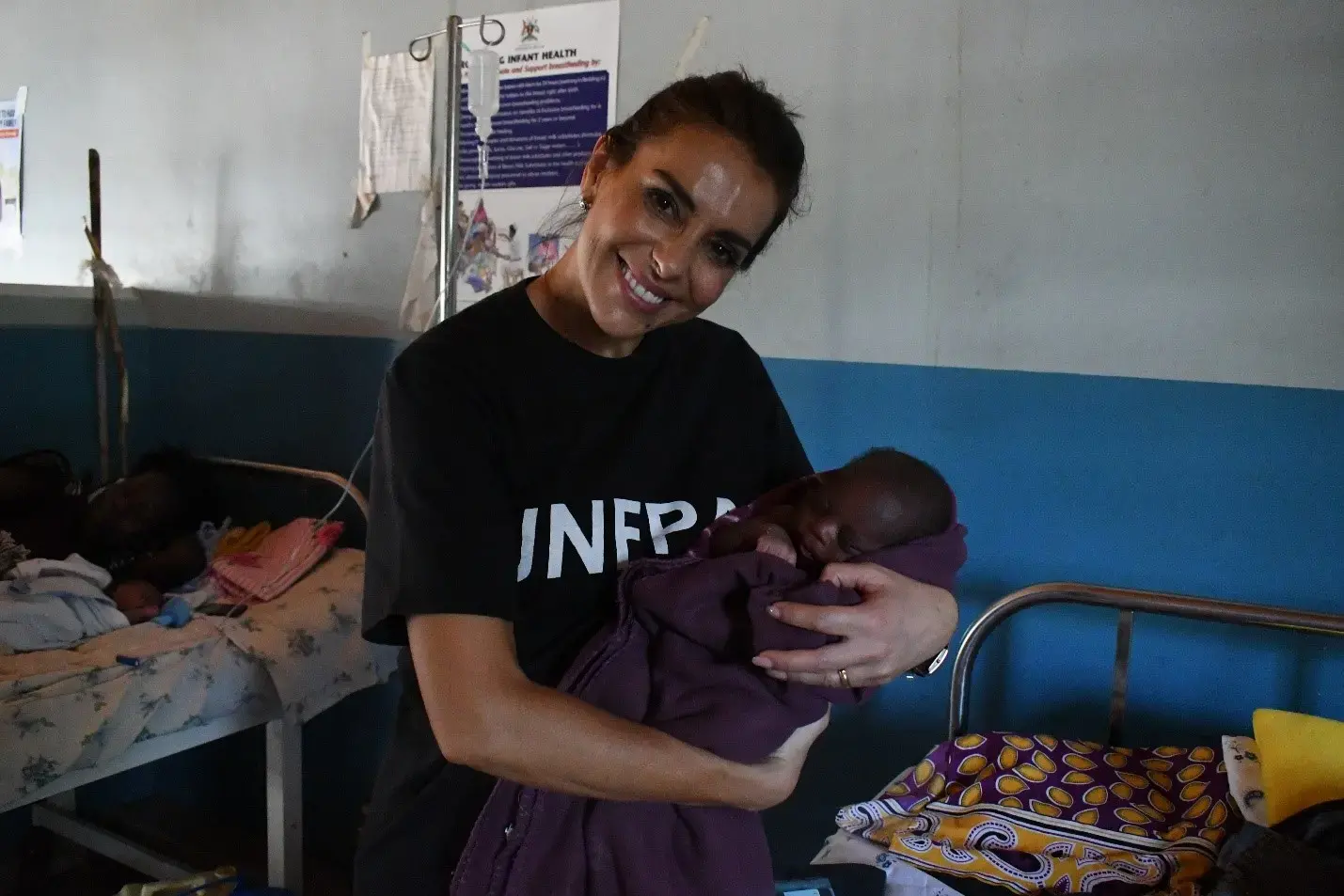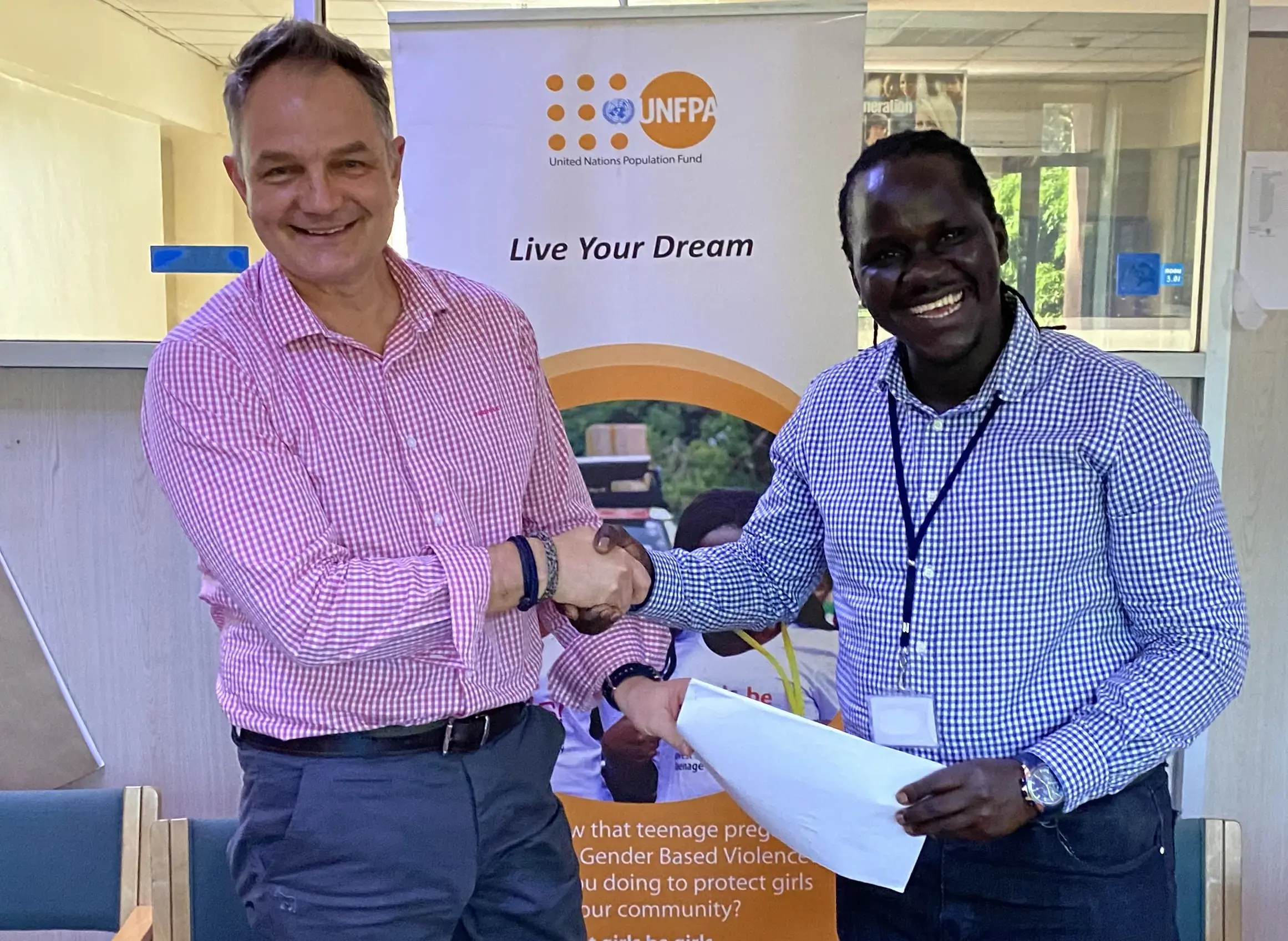Palabek Settlement, LAMWO: The beginning of menstruation is a normal part of human life natural healthy part of an adolescent’s life. But for many girls, that time of the month can be a nightmare when it gets in the way of living and enjoying daily life.
In Uganda, it is estimated that 30 percent girls from poor families miss school during their monthly menstrual cycle due to lack of sanitary products, some consequently dropping out of school along the way, and that does not exclude the adolescent girls living in humanitarian settings.
To address this, UNFPA is demystifying menstruation by providing sanitary kits to adolescent girls living in humanitarian settings to keep them in school. Through Implementing Partner ACORD, UNFPA has established anti- GBV school clubs in primary schools across refugee settlement of Lamwo, Kiryadongo, Kyaka II and Rwamwanja.
Seventeen-year-old Gloria Kwero, a primary seven pupil at World View Primary School in Palabek Refugee settlement says she has never missed school from the day she learnt about managing her monthly menses through a school club.
“Before the club was brought to our school, I used to miss one week of school every month until I ended my periods.
“The club has helped me a lot because I got information about managing my menses. I also learnt how to make reusable sanitary pads and how to maintain them,” she said.
I want to be an accountant when I grow up and menstruation will not stop me,” she says.
Consisting of students between 13-16 years, the club meets once a week to demystify menstruation; providing information to young girls about menstrual hygiene and sensitizing boys to eliminate stigma surrounding menstruation and making healthy adolescent reproductive health choices through music, dance, sports and drama activities, talk about peer pressure, healthy living and life skills training.
The anti-GBV school clubs also encourage debates, raising awareness and shaping the thinking and mind-sets of boys and girls on GBV prevention at an early age so as to have positive impact on breaking the silence surrounding school-related gender-based violence.
The Head Teacher of the school, Stella Aloyo Oryang said the clubs have made a great difference in both school attendance and performance: “Lack of sanitary pads was a major cause of school drop outs. Now we see a reduction in the numbers of girls leaving school. I see a lot of change in our girls as far as performance is concerned,” she says.
According to the Head Teacher, before the club was started, girls (and boys) did not have an avenue where to share their social problems, encountered both at home and at school.
“The clubs have created great self-awareness and girls are now opening up and expressing themselves. They are more confident,” she says.
The Matron of the school, Night Akwero agrees, saying the anti-GBV club has helped the young people live more focused and responsible lives. She added there are also many child -headed households among the communities who need to be empowered to realize the benefits of keeping in school: “The clubs are very helpful. We are seeing better performance in class and no pregnancy cases have been reported in the school since the clubs started,” the matron said.
“Menstrual kits are provided but girls should be empowered to make their own. We need to be able to reach every adolescent girl so as to keep them in school,” she said.
Sixteen-year-old Benson Kidega, a member of the club says before he joined, he spent much of his time in the company of friends who lured him to video halls to watch films in the night instead of doing his homework.
“I stopped moving around at night as I realized this does not give me time to revise my books. Now I am friendly and understanding. I have also learnt about making the right choices. When something is not good for you, you have to make the right decisions,” he says
“In the club, I was also told I should not go for early marriage because it can leads to dropping out of school,” he says.
-Story by Evelyn Matsamura Kiapi




